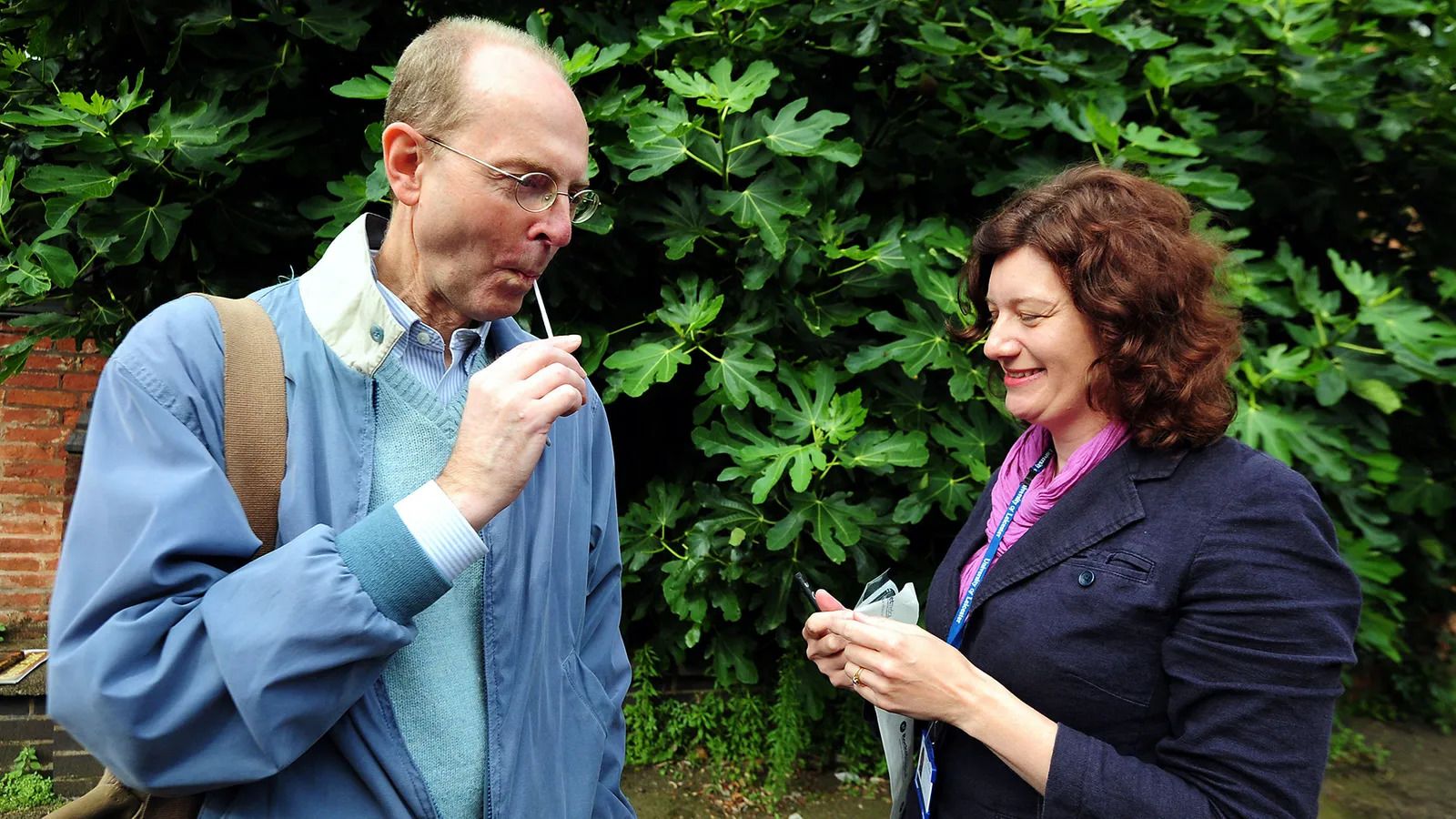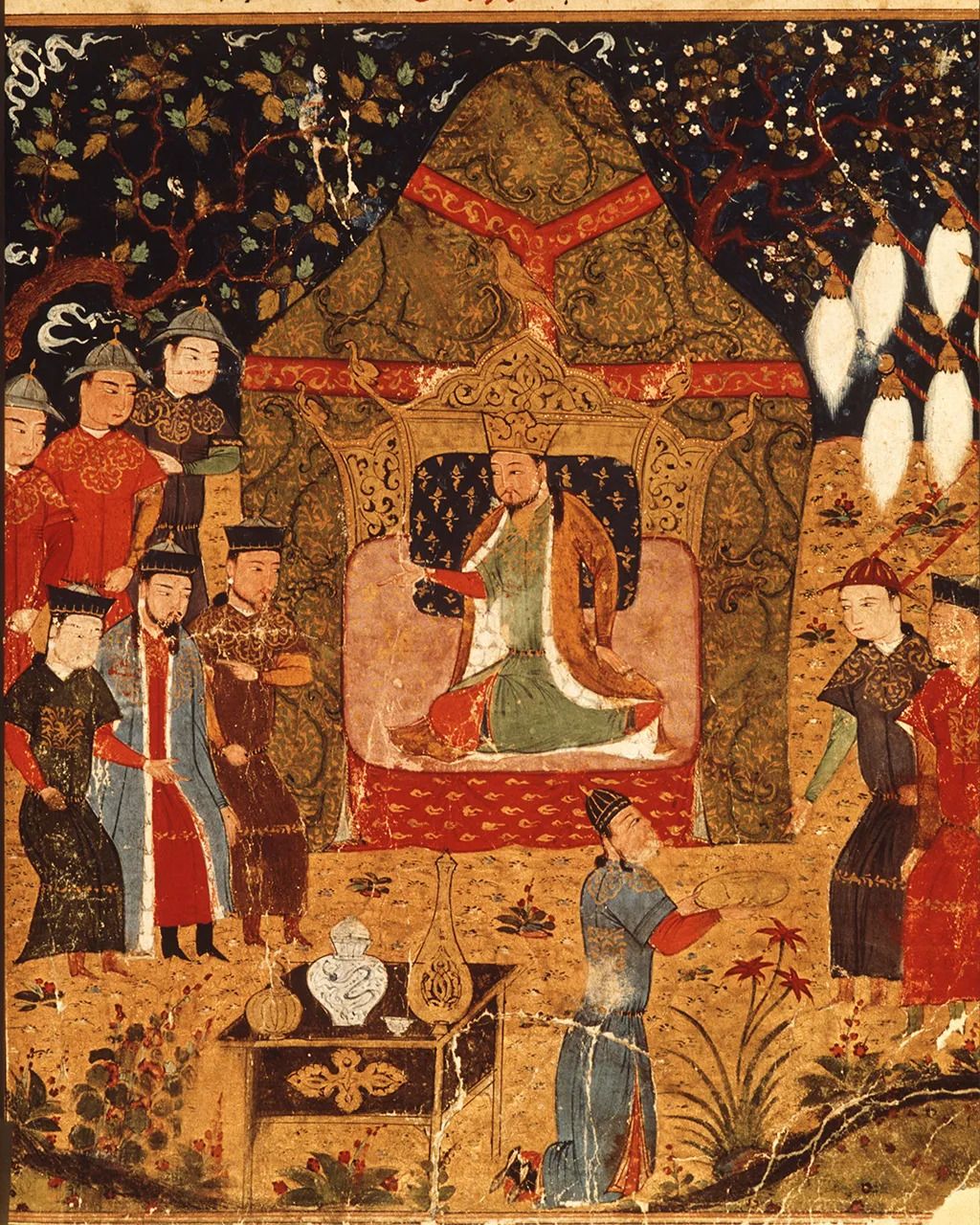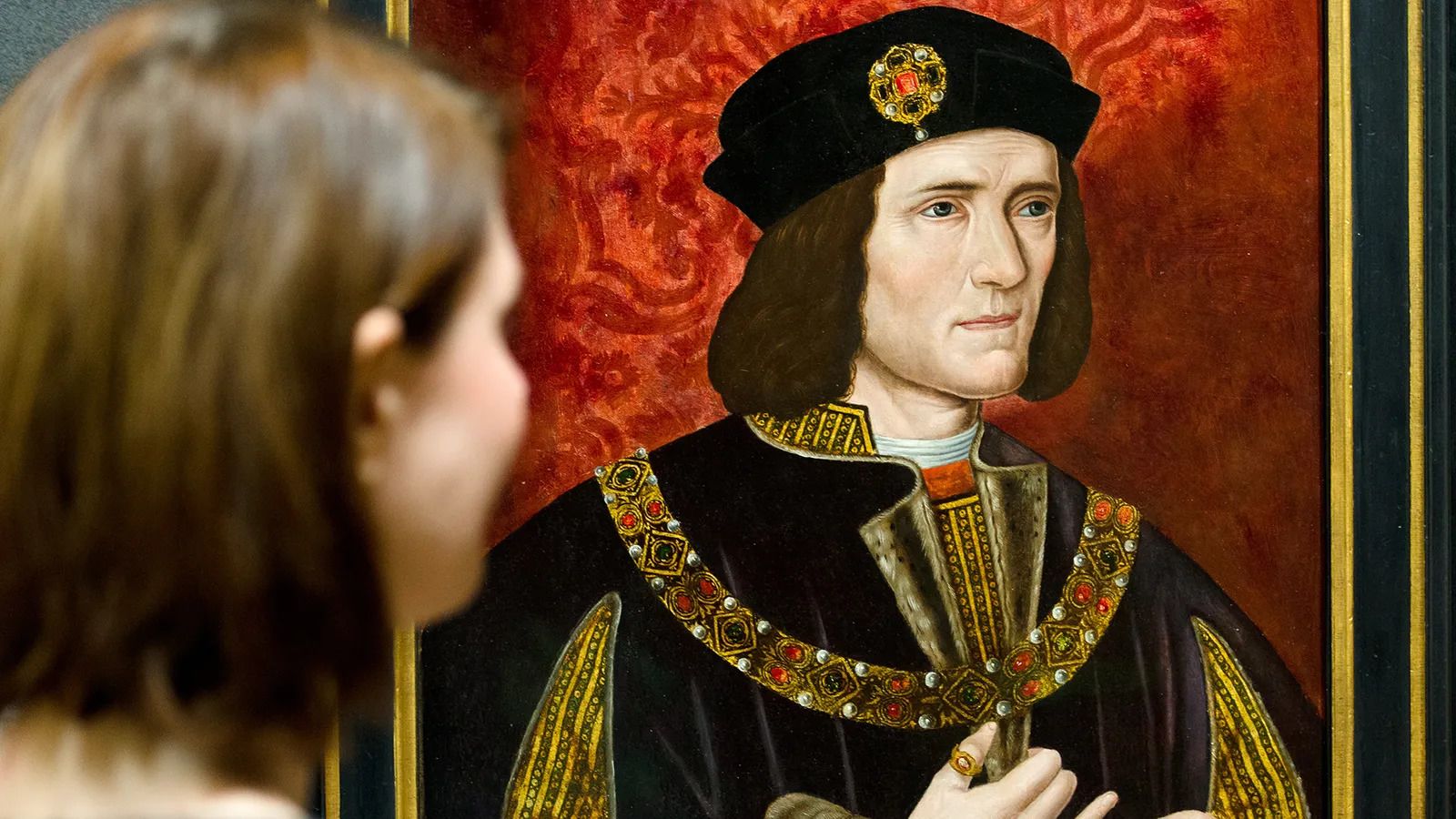
Coronation of King Charles III: Are you related to a King
Joy Ibsen, a retired Canadian journalist, had been an avid amateur geneaologist. Using digital census records, birth certificates and marriage documents, she painstakingly traced her family's ancestry back to the 14th Century. But for all her efforts, there was one key piece of information that she missed.
In 2004, she was contacted by a British historian: she had been identified as a descendant of Richard III, England's last Plantagenet king. After she passed away, it was her son, Michael Ibsen, who found himself thrust into an extraordinary detective story.
When the suspected remains of Richard III were discovered underneath a Leicester car park in 2012, it was a sample of Ibsen's spit that helped to confirm the long-dead king's identity. Hidden within his DNA were genetic sequences that came from the royal line.
"We had no idea that we would be part of the process of finding Richard III's remains," says Ibsen. "It's not a direct line, because we were traced down his sister's female line, but basically he's a great-uncle 17 times removed."
For Ibsen, a 66-year-old carpenter and furniture-maker living in North London, it seemed like a remarkable coincidence. As he gazed upon his ancestor's skeleton ahead of a reinternment ceremony in Leicester Cathedral in 2015, he reflected on the sheer improbability of it all. "The unique thing that really struck me was just how many people must be descended from Richard III's family," he says. "But I was one of the few who has actual tangible DNA in common with him. That made it a much more powerful moment."
In recent years, the popular BBC TV series Who Do You Think You Are has seen numerous public figures discover to their shock that they have distant royal connections of their own. Supermodel Cindy Crawford is a distant descendant of the King of the Franks and Holy Roman Emperor Charlemagne. Actress Brooke Shields learned she was descended from French royalty, while actresses Hilary Duff and Uma Therman are distantly related the British royal family.
How likely is it that you, too, might have some royal connections lurking somewhere in your ancestry?
 A DNA swab taken from Michael Ibsen played a crucial role in identifying
the remains of King Richard III that were found in a car park in
Leicester
A DNA swab taken from Michael Ibsen played a crucial role in identifying
the remains of King Richard III that were found in a car park in
Leicester
Perhaps surprisingly, this is a near certainty. The only question is how far back through the centuries you need to search in order to find them.
While this might seem surprising, it is important to realise that your family tree grows exponentially the further back you go in time. Over the course of just four generations, it goes from two parents to four grandparents, eight great-grandparents and 16 great-great grandparents – numbers which then expand dramatically.
For example, if you go back 25 generations, you have more than 33 million ancestors. As population sizes were relatively small back then – in the year 1200, the global population was somewhere between 360 and 450 million – the chance that this extended family tree includes royalty becomes much greater.
According to Graham Coop, professor of evolution and ecology at the University of California, Davis, if you go back even further in time, you ultimately find that your family tree becomes so vast that you are distantly related to almost everyone who has ever lived, provided they lived long enough to leave descendants.
As a result, experts like Coop have estimated that any reasonably fertile ruler who lived around 1,000 years ago is probably the ancestor of a large swathe of the population today. A common example is Charlemagne, who lived from 747-814, uniting most of Europe under his rule, marrying at least ten times, and leaving 18 children. While it is hard to prove conclusively, it has been suggested that most of today's European population must descend from him.
Likewise, most of the Asian population may be descended from the Chinese philosopher Confucius. Due to the influence of migration, conquering invaders and colonisation in the past two thousand years, computer models have even made the provocative prediction that the most recent common ancestor of all humans on the planet alive today lived at some point between 1400 BC – during the reign of the Egyptian pharaoh Queen Nefertiti – and AD 55.
"I think it's a hard thing for people to grasp because you think you know your ancestors and that there's a relatively small number," says Coop. "But you don't realise how quickly that family tree expands back through the generations, and so you're actually descended from nearly everyone who ever lived who left kids. And that ranges from bricklayers to kings and queens."
Being a genealogical relative is very different from sharing DNA – Shai Carmi
But being vaguely descended from royalty in the distant past is quite different from having a tangible biological link to a ruler who lived long ago. Cases like Ibsen's are exceedingly rare because we only share DNA with a tiny fraction of our family tree.
According to Shai Carmi, a population genetics professor at the Hebrew University School of Public Health, every letter of our genetic code represents the DNA of our parents, grandparents, or even those further back in time.
But beyond our sixth generation of ancestors, the amount of genetic material we inherit from those who lived centuries ago is vanishingly small.
"Suppose you go back 1,000 years. Then probably every British person, excluding recent migrants, will be descended in some way from royal kings and queens of the time," says Carmi. "But the probability that you carry any of their DNA is extremely unlikely. Being a genealogical relative is very different from sharing DNA."
To illustrate this for BBC Future, Coop crunched some numbers for Edward I. Taking 30 years as a single generation, 24 generations separate today from the medieval king's reign. This would mean that he has around 16 million possible genealogical descendants in the UK and elsewhere in the world today. Yet just 8,000 of them, or 0.05%, are likely to carry any of his DNA, according to Coop's calculations.
So, who are these people? According to Graham Holton, a genealogical researcher at the University of Strathclyde who has traced his own family tree back to Edward I, inherited DNA tends to happen through what genealogists term "unbroken male or female lines".
 Genghis Khan, the founder of the Mongol Empire, has been credited with
being the potential ancestor of around 1 in every 200 men around the
world
Genghis Khan, the founder of the Mongol Empire, has been credited with
being the potential ancestor of around 1 in every 200 men around the
world
One particular type of genetic material – mitochondrial DNA, found within the tiny, lozenge-shaped structures inside your cells that produce the energy needed to power your body – is passed on down the maternal line. You inherit it from your mother, her mother and so on through the centuries. While sons get their mitochondrial DNA from their mothers, only daughters can pass it on. It was Ibsen's mitochondrial DNA that was used to identify Richard III: his mother had been part of an unbroken maternal line stretching down 700 years from the monarch's sister.
Likewise, the Y chromosome – which leads to male reproductive development – is passed down through unbroken paternal lines. "Those two types of DNA, the Y chromosome and mitochondrial DNA, you inherit virtually unchanged and that can be the case for hundreds or even thousands of years," says Holton. "In my instance, I probably haven't inherited any DNA from Edward I, because the ancestral line contains a mixture of male and female links."
Y chromosomes, in particular, have been used to try to establish genetic links with modern day families and famous historical figures from the past. For example, it has long been widely rumoured that Thomas Jefferson, the third US president, sired children with his slave Sally Hemings. DNA testing has since proven that some of Hemings' male descendants do carry a matching Jefferson Y chromosome – although some have argued that this could have come from another male relative of the Jefferson family, not necessarily the president himself.
Because the Y chromosome is more likely to be passed down through the generations if the man in question and his male offspring have lots of children, it has been speculated that some Y chromosomal sequences found to be notably prevalent in modern populations have come from particularly prolific kings or emperors.
One such sequence, found in around 1.5 million men in northern China and Mongolia, has been attributed to the 16th-century Qing Dynasty ruler Giocangga, who is believed to have had many wives and mistresses. José Raúl Sandoval, a geneticist at the University of San Martin de Porres in Lima, has used Y chromosomal DNA to link some of Peru's poorest families to nobility from the time of the Incan empire, including even to the last Incan emperor. "This is helping us connect with our history," says Sandoval. "The Incas didn't die out. They live on in many Peruvian families."
Genghis Khan and his male successors are thought to have potentially fathered hundreds or even thousands of children
Most intriguing of all is the speculation surrounding Genghis Khan, the notorious founder of the Mongol Empire, which at one point stretched from the Sea of Japan to Eastern Europe. In 2003, a genetic study identified a single Y chromosomal sequence dating back around 1,000 years to the time of his rule. It is so extraordinarily prevalent that it is carried by around 1 in 200 men around the world.
While there is no way of confirming that this does indeed come from Khan, whose burial site remains unknown, he and his male successors are thought to have potentially fathered hundreds or even thousands of children through raping the women of conquered tribes across their vast empire.
"It's not improbable that his Y chromosome could have achieved very high frequency," says Coop. "Geneticists have said it's plausible that this is due to Genghis Khan or someone associated with the Mongols. But we have no idea what his DNA would look like in order to prove this."
Some commercial companies are now even attempting to use Y chromosomal sequencing to capitalise on the interest in potential royal heritage. Chinese genetic testing company 23Mofang claim that they can tell whether you carry DNA from ancient Chinese emperors, suggesting that around 25.3 million Chinese people are genetically linked to the founder of the Han dynasty who ruled 2,200 years ago, for example. However, Carmi urges caution when such links are being made to people who lived very long ago.
"When the target ancestor lived more than 2,000 years ago, it is very difficult to prove direct descent," he says. "For example, it has also been found that among Jews with priestly status, there is a strong enrichment of a certain Y chromosomal sequence, but that does not imply that all carriers of this sequence descend from particular biblical figures."
 If you go back enough generations it becomes relatively easy to trace some sort of family tie to royalty
If you go back enough generations it becomes relatively easy to trace some sort of family tie to royalty
But when it comes to how far the average person might have to go back in order to find a link to royalty, Holton suggests that the earliest timeframe might be the 16th Century, unless it is already well-known within the family that there are noble connections.
"You're often looking for what we call 'gateway ancestors' – members of a noble family who subsequently married into a lower class, and so their status reduced with time. But if you can find someone like that, it tends to be your link to royalty because there was so much intermarriage between royal and noble families across Europe in the medieval times."
As for Ibsen, his life has been changed forever by the knowledge that he is descended from Richard III. Still, he says he's not expecting to feel any particular sentiment when King Charles III is officially crowned at his Coronation alongside his wife, Camilla, the Queen Consort.
"I don't really connect with it," he says. "The Windsors are a completely different ancestral line to Richard III. They're half German, so there's not really a link there. But a lot of people ask me about it. There used to be a guy working in a garage across the road from my workshop and every time he saw me, he'd ask seriously, 'Why aren't you being invited to the palace?'"











